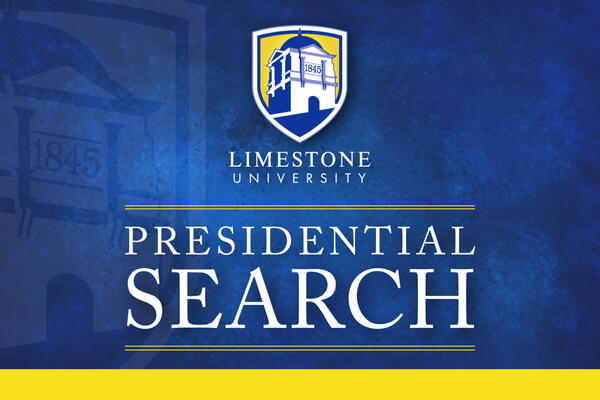November 14th, 2014
Professor Pens Vatican Hierarchy Book

By accessing previously unavailable sources directly from the Secret Vatican Archives, Limestone College Assistant Professor of History Dr. Karl J. Trybus has written a book to clarify the difficult options that awaited the Pope during the Second Spanish Republic and Civil War over 80 years ago.
Dr. Trybus’ research interests long focused on the intersections between Vatican diplomacy and Spanish politics during the 1930s, and that has led to his first book, The Rosary, the Republic, and the Right: Spain and the Vatican Hierarchy, 1931-1939.
The book explores the unique position and specialized reactions of the Vatican concerning the Second Republic and Civil War. It also highlights the fact that the Catholic Church was not some monolithic entity, but men like Pope Pius XI and Secretary of State Eugenio Pacelli had their own understandings of spirituality and politics.
“This started as my Ph.D. dissertation while at the University of Connecticut,” Dr. Trybus explained about the origins of the book. “I needed a topic and luckily I met a historian who works in Rome named Dr. Alessandro Visani, and he said to me, ‘You know what hasn’t been done yet?’ He was speaking about Vatican archival material in relation to Spain. It has been done, obviously, in relation to Nazi Germany and Fascist Italy, and has started to be done on France. But Spain had not been looked at in depth.”
The book summary explains that the birth of the Second Spanish Republic in April of 1931 ushered in a period of possible secularization to Spain. Liberals welcomed legal changes, while conservatives feared the special “privileges” they enjoyed would end. The Catholic Church remained a central focus of left-wing antagonism and right-wing allegiances, and conflicts surrounding the future of religion grew severe. While members of the Spanish Catholic hierarchy had clearly supported the right and disdained the left, the actions and opinions of the Vatican and its hierarchy stationed in Spain were much more nuanced.
Similarly, when conservative military action plunged Spain into a Civil War in July 1936, the majority of the Spanish Catholic hierarchy openly supported their victory, but the highest levels of the Vatican remained silent. For the Holy See (the Pope), the conflict in Spain was not an isolated event at the edge of the continent, but part of a larger narrative of ideological and political tension swirling across Europe. Any public statement by the Vatican concerning the Spanish Republic or Civil War could be misconstrued as support for one side or another, and threaten the Church.
The book by the 34-year-old native of Seymour, Connecticut, was published by Sussex Academic Press in October of this year and is available at bookstores, and through Amazon and other online retailers.
“It has been a seven-year process,” Dr. Trybus explained. “The research started in 2007 and my dissertation was defended in 2012, and here we are in 2014 with the book being published. It’s exciting to have it finished.
“For several weeks, I worked in the Historical Memory Documentary Centre in Salamanca, Spain,” he continued. “And Alessandro Visani helped me with the Vatican archives in Rome. He was able to travel to the archives and send me materials, which was easier than my going back and forth as a grad student.”
The Secret Vatican Archives, which are located in Vatican City, are the central repository for all of the acts promoted by the Holy See. The archives contain the state papers, correspondence, papal account books, and many other documents which the church has accumulated over the centuries.
“My interests are primarily in Spain itself,” Dr. Trybus noted. “When I was a junior in college, it was commonplace for students to spend a semester abroad, and as a Hispanic Studies and History major, I went to Seville for a term. I just fell in love with it. It’s a great place and I try to go back every couple of years.”
Dr. Trybus expects to return to Spain in the summer of 2015, to do research for two upcoming projects. First is an edited collection with another professor on how historians teach about modern and early modern Spain, which he says is needed because there is only a small circle of Spanish historians in North America. Second, is a personal project on Spanish agricultural exports to the United States, and issues surrounding marketing and advertising. In addition, he will look at how the Spanish wine industry has tried to sell its products to the English-speaking market.
“While it is our responsibility as historians to teach, we must also stay current with research,” Dr. Trybus said. “The more we can be a part of that conversation, the more effective we can be as instructors. The more we do that, the more students see history as an active, instead of passive, field. We set trends and we try to answer questions that people have not been able to address.”
Dr. Trybus did his undergraduate work at Connecticut College, majoring in History and Hispanic Studies. He completed his Master’s in International Studies at the University of Connecticut, where he would also earn his Ph.D.



